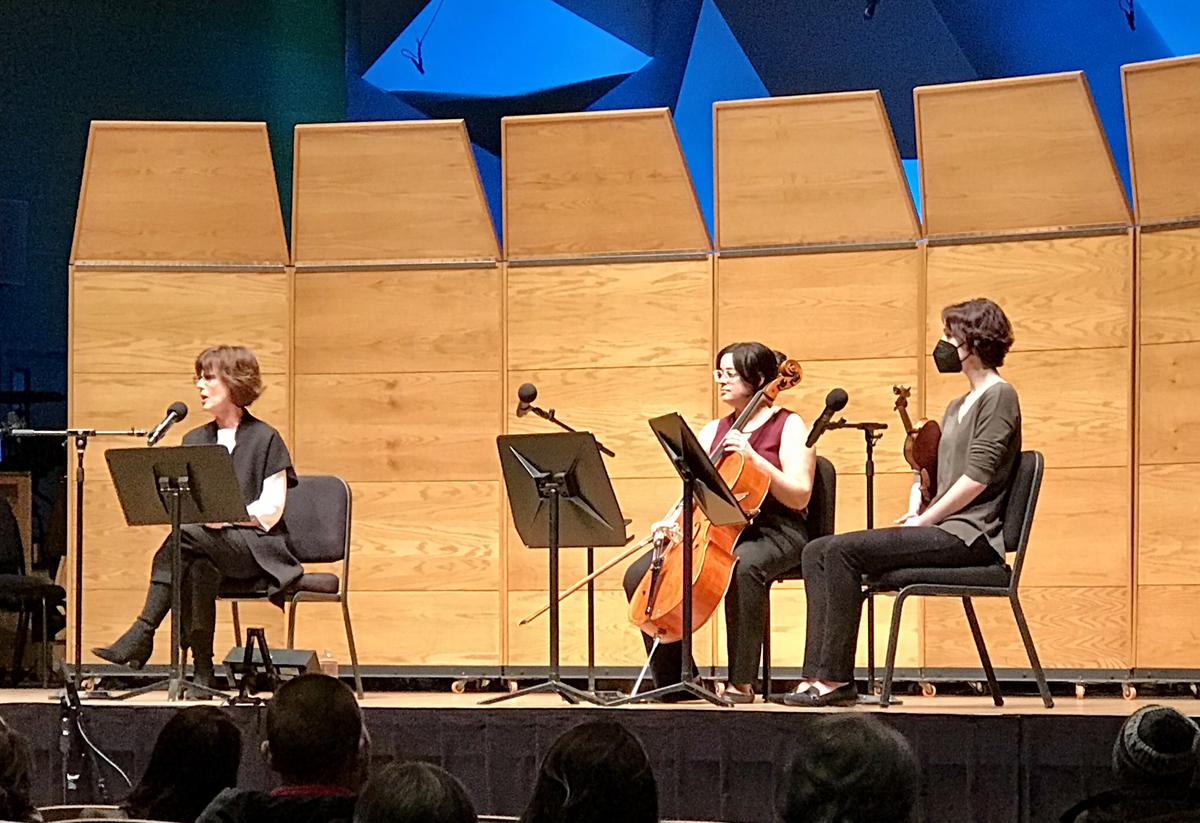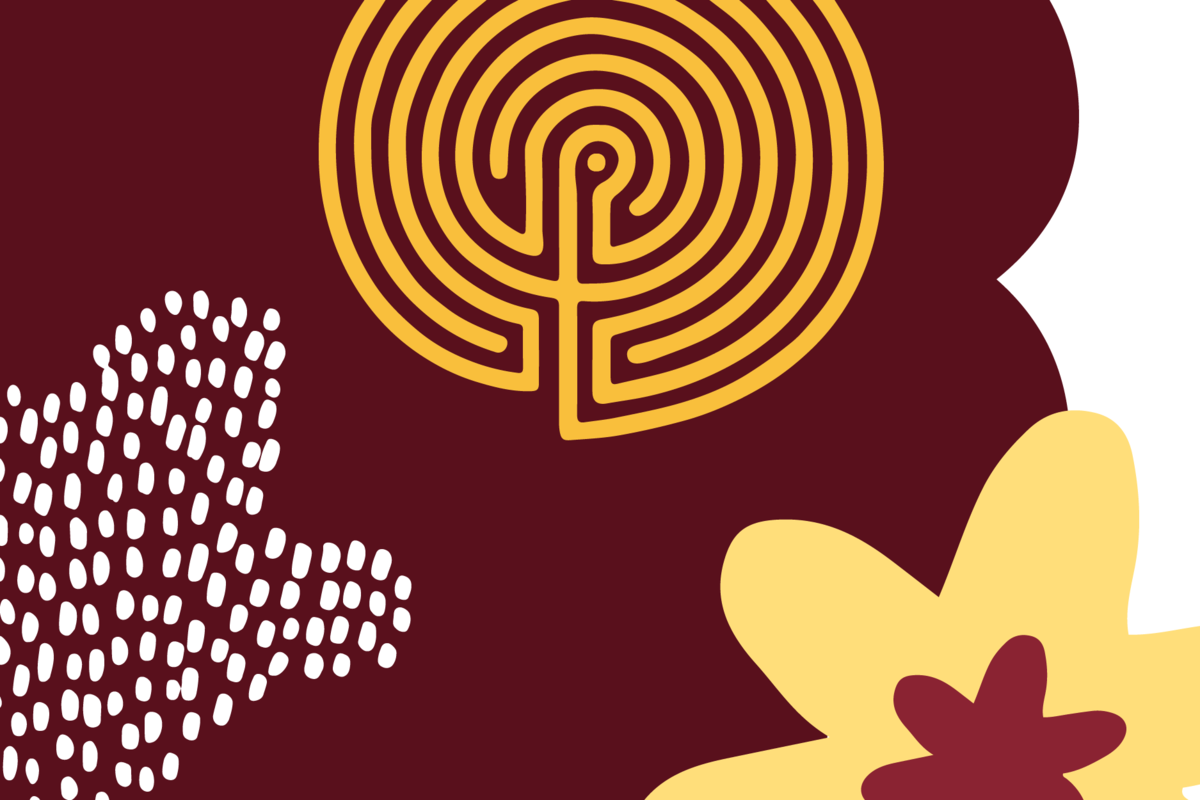CSH Mindfulness Newsletter – 25th Issue, Cultivating Mindful Attitudes: A Personal and Relational Practice
February 1, 2022
Mariann Johnson
When speaking with those who practice mindfulness meditation, you can quickly begin to see some pretty consistent themes emerge for what drew them to their practice: a desire for stress reduction, enhanced focus and concentration, and/or a greater understanding and compassion for themselves and others.
Regardless of how we might come to our practice, the process of mindfulness meditation involves the development of three key elements: intention, attention and attitude. These elements are deeply interrelated and also stand alone as important foundational aspects of mindful awareness.
Intention is the reason or motivation for why we practice: an often heart-felt desire to be more mindful and alive to the momentary unfolding of our daily lives. For many, it also reflects their deepest values and principles.
Attention is learning to place our focus and awareness on our present moment experience rather than being carried away by the mind’s propensity for being easily distracted, spun into discursive thinking or seduced by the next shiny object. Because our bodies and our breath are always in the present moment, basic meditation instructions generally include anchoring our attention on a momentary felt sense of our breath or body. In doing so, we gently allow body sensations to serve as a base to come home to and begin again, fresh and new, as often as needed.
And then there is Attitude. Jon Kabat-Zinn, founder of Mindfulness-Based Stress Reduction considers one’s attitude so important to the process of developing mindful awareness that he has delineated nine widely recognized Attitudes of Mindfulness (see below). In this landmark book, Full Catastrophe Living: Using the Wisdom of Your Body and Mind to Face Stress, Pain and Illness, Kabat-Zinn states, “The attitude with which you undertake the practice of paying attention and being in the present moment is crucial. It is the soil in which you will cultivate your ability to calm your mind and to relax your body to concentrate and see more clearly.” By cultivating these nine attitudes of mindfulness, over time we learn to tame and befriend our self-critical and all-too-human tendencies for reactive or judgemental thinking, and allow for a more compassionate, wise discernment to arise.
The cultivation of Kabat-Zinn’s nine mindful attitudes provides a fertile ground not only for our mindfulness practice to grow and deepen, but can also serve to strengthen our relationship with others. When we are mindfully attentive to the quality and condition of our own minds, we are often able to see and respond to others with greater sensitivity and understanding.
Practicing with the Nine Attitudes of Mindfulness
(Slightly adapted from Jon Kabat-Zinn’s nine Attitudes of Mindfulness)
This month, you may wish to select a daily or weekly mindful attitude to cultivate, during your formal mindfulness meditation practice and/or in your everyday life. You may wish to pay particular attention to the use and cultivation of these attitudes in your relationship with others; maybe journaling about your experiences, or choosing to invite a trusted friend, co-worker or family member to support you in cultivating these mindful attitudes, or to practice right along with you!
Beginner’s Mind
Enjoy the freshness of an open and “not knowing mind.” Experiment with exploring life with a child-like wonder and curiosity. You may find it helps to broaden your perspective and enhance your resiliency.
Non-judging
With a gentle discernment, notice how quickly you can jump to like/dislike or conditioned thought patterns that may be limiting your perspective, creativity and clarity. Practice suspending your very human tendency to judge and to react. Then, perhaps with a dose of levity, notice any judging of the judging mind!
Acceptance/Allowing
Apply the wisdom of awareness to understand how things truly are. This is not about complacency or resignation, but rather about no longer doing battle with the way things are. Then, and only then, can we really grow and change.
Letting Go
Letting things be just as they are isn’t always easy, yet when we allow ourselves to be just as we are, for life itself to be just as it is, we begin to experience the freedom of letting be and letting go.
Trust
Gently explore befriending your emotions and learning to trust yourself and your inner knowing. Coming home regularly to a felt sense of your body and breath may help build a deeper connection and trust in your own experience.
Patience
With kindness, practice putting your impatience on pause for just a moment. Take a look around, feel your feet on the ground and remember that life isn’t meant to be a relay race. Begin to appreciate the natural unfolding of life.
Non-striving
Remember you are enough, just as you are, right here, right now. Even in a world of endless to-do lists and external expectations, and where busyness is often viewed as a virtue, you can instead choose to mindfully and compassionately affirm your being nature.
Gratitude
Humbly express gratitude and appreciation for the goodness in your life. Take pauses throughout your day to recognize the good in your life, even in the most challenging of times. Extend appreciation to others for their acts of kindness, whether big or small, past or present.
Generosity
Giving of yourself to others with an open heart, without expecting anything in return. It just may heighten your sense of interconnectedness with others and leave you with a happy heart


